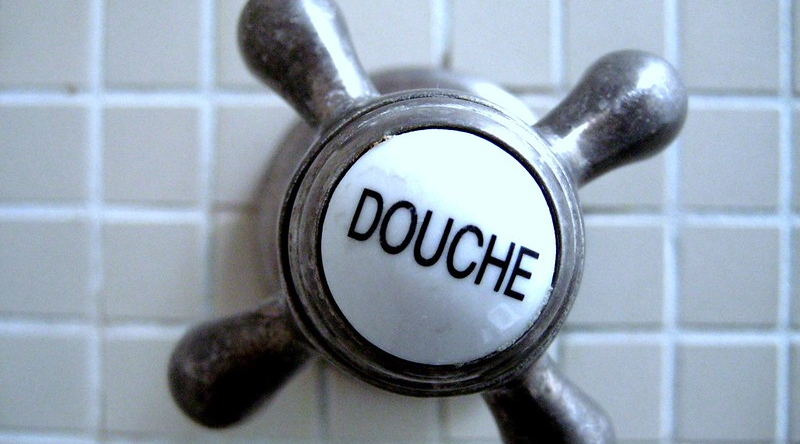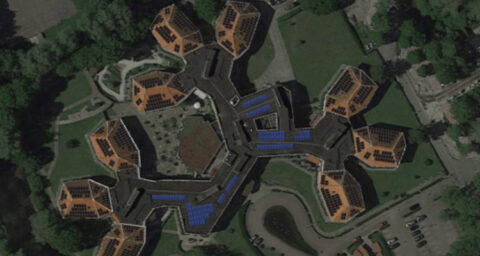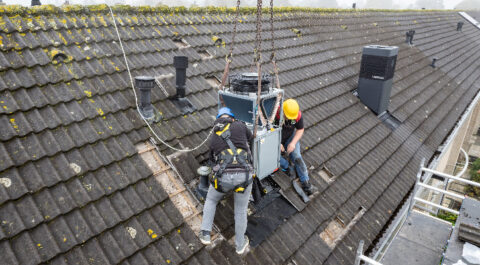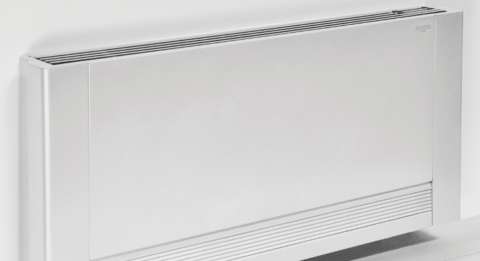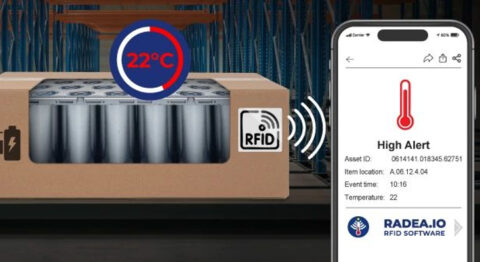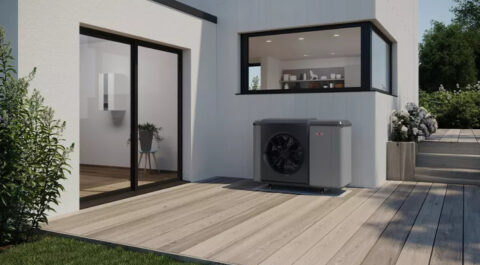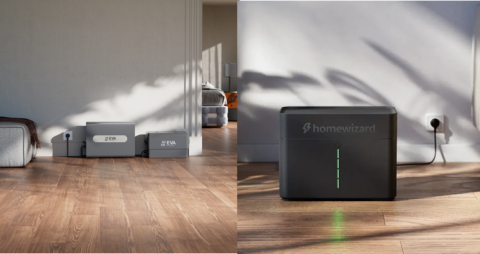Heat recovery from shower water results in substantial energy savings. In the BENG system, the technology counts as a separate parameter, and that helps installation consultants more easily convince clients that a shower heat recovery system will be of great benefit to them.
The operating principle of a shower WWT is simple: during showering, the used shower water is passed along the incoming cold water pipe, preheating the cold water so that the heat source needs to supply less energy. The cold water preheated by the shower WWT can be sent to the boiler or heat pump, or it can be connected directly to the cold water pipe of the thermostatic shower mixer. The faucet will then draw less water hot water from the heat source to bring the water to the desired temperature. With a shower gutter heat exchanger, this quickly yields 38 percent; with the shower pipe heat exchanger, it can rise to 73 percent. So the primary energy consumption can be significantly reduced, and in BENG that pays off a lot.
Horizontal and vertical solutions
Shower WWT systems can be broadly divided into two systems: those in which the shower pipe itself is the heat exchanger, and those in which the heat exchanger is placed in a sump of a shower drain. The water supply from the shower WWT can be connected directly to the cold port of the shower mixer, preheating the cold tap water and reducing the need to add hot water. It will often be the simplest method of installation, unless the heat source is located nearby. In that case, it can be connected both to the cold port of the mixer faucet and to the inlet of the water heater.
Big differences
There are major differences between the systems of the various providers. This applies to the shower pipe heat exchanger in terms of efficiency and to the shower channel heat exchanger in terms of quality and ease of maintenance. In the gutter, several pipes run parallel to each other in order to achieve sufficient efficiency from the heat exchange. A necessity is that this heat exchanger is easily accessible and easy to clean. It is also important that manufacturers constantly innovate, as this leads to ever better efficiency
Comfort
Saving energy is not necessarily the only reason to choose shower WWTP. It also contributes to comfort. A rain shower without heat exchanger requires a considerable amount of hot water and therefore a lot of energy from the heat generator. With a shower heat exchanger, a heat pump of the same power is sufficient to still produce a considerable amount of hot water from the shower head. When using a gas boiler, a smaller amount of hot water needs to be added to the shower mixer. With a storage boiler, the available buffer allows for longer showers, or you can even make do with a smaller boiler. Another advantage of shower water WWT is that a heat generator such as a heat pump can be sized smaller.

